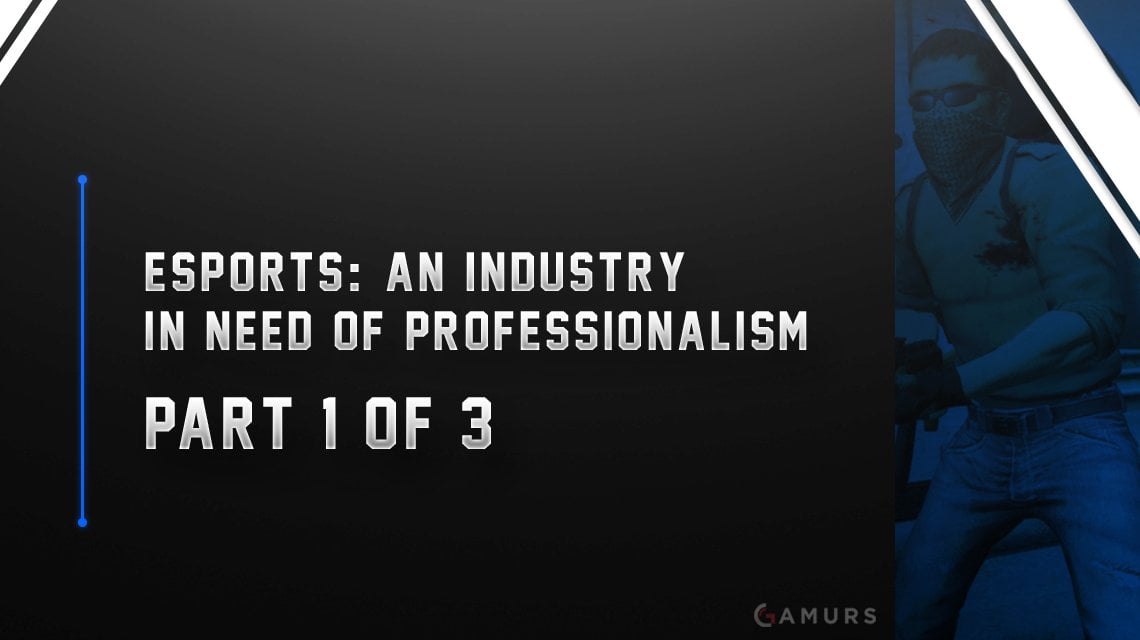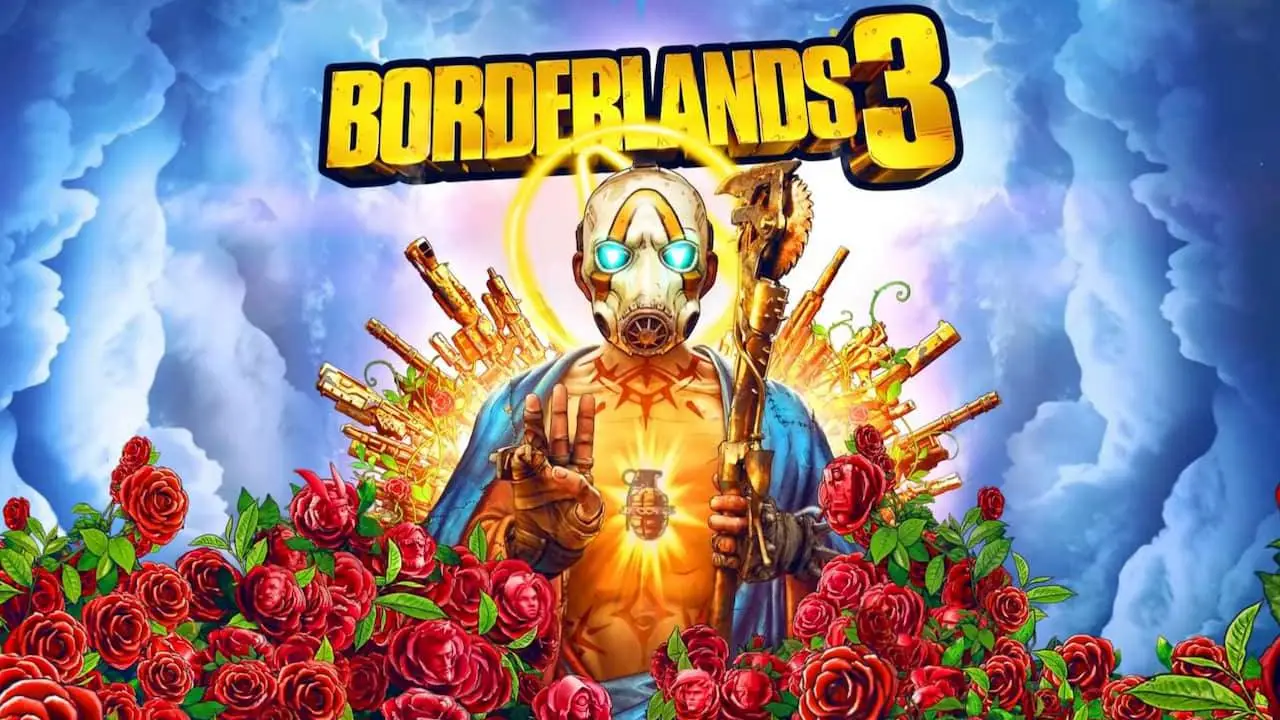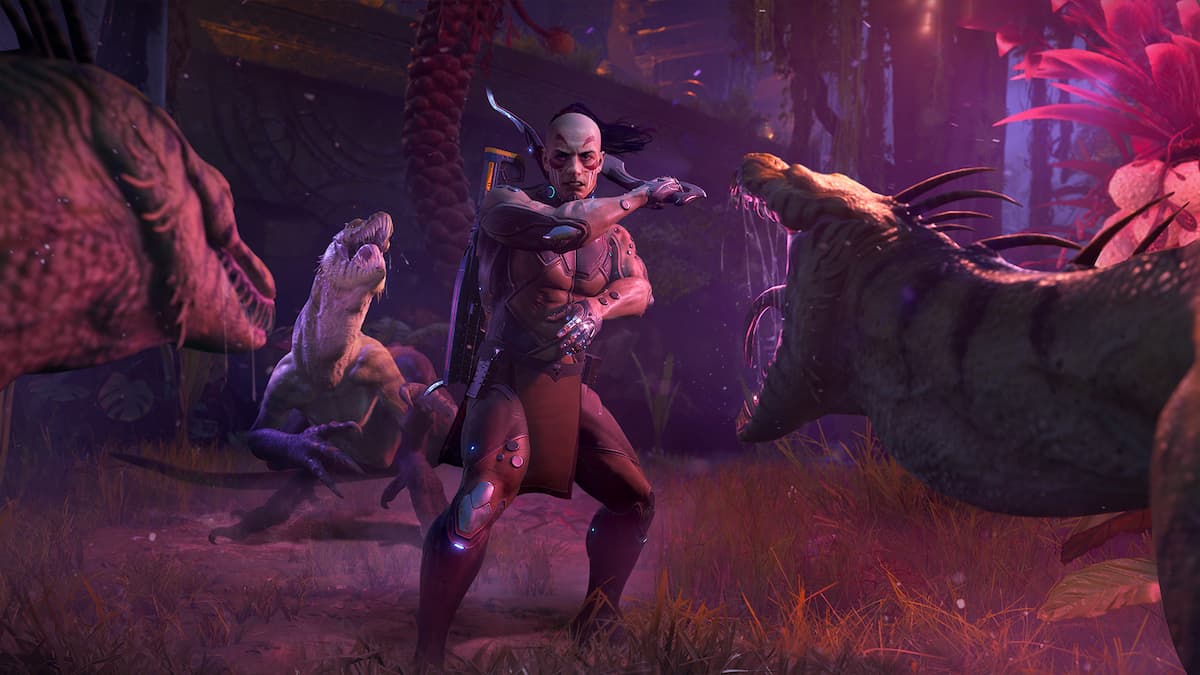Look, I’m not by any means a sensationalist-type writer,nor am I proud of the “clickbait-y” nature of thisarticle’s title (it is certainly clickbait-y, but only just).However, I think there is a conversation that needs to take placeregarding how to improve the professional atmosphere of the esportsscene. Perhaps the title reads a bit extreme, but I would encourageanyone active in the esports industry to prove me wrong.
Until we have a culture wherethe “norm” is both professional and mature, the esportsmarket will always remain a second-tier entertainmentindustry.
First, I acknowledge thosebastions of professionalism and maturity that do exist in the realmof esports: the organizations that go above and beyond in promotingesports in general, the companies who bring their corporate cultureto bear on otherwise immature organizations, and the individualswho have fully grasped what it means to promote a personal brandand to do so with a level of self-awareness and care.
Those people, unfortunately,make up a minority of what we consider esports. Therein lies theproblem: Until we have a culture where the“norm” is both professional and mature, the esportsmarket will always remain a second-tier entertainment industry.Let me be clear. I am a volunteerin this world of esports, giving my time and effort to help buildit from within, so my criticism of the industry is by no means acondemnation, but an impassioned plea in the hopes that we mightstart intentionally building toward a more professional end.Hopefully, as a result, the scene can gain legitimacy, mainstreamattention, additional corporate support and involvement, and trulyoperate at the same level as, say, the professional sports andentertainment industries.
Let me provide a bit aboutme, as I’m sure you might be wondering “who the hell isthis guy?” In the esports world, I am an ex-semi-pro playerwho now serves as the Chief Brand Officer for TeameLevate. Outside ofthat sphere, I am an academic; a researcher in the educationworld, with a Ph.D. in Organizational Leadership. My focus is onthe intersect between people and technology. Amazing how gamingfits within that sphere.
I honestly think there is aneven brighter future in store for esports if its members cancollectively build upon what is already there.
At any rate, I entered theesports world first as a writer, later, an editor-in-chief, andfinally, as a C-suite member of a fairly prominent esportsorganization. I’m sure luck had a lot to do with it, yet atthe same time, I’m also aware that my maturity,intentionality, and educational upbringing centered on howorganizations operate also contributed. While I’m stillshocked at the journey I had over the past couple years that led meto this position, I am hopeful that I can use it to effect somechange in the esports world, namely about the professional way inwhich we operate.
As a gamer in my mid-30s,I’m afraid my position may come across as complaining aboutthe “good old days” but I honestly think there is aneven brighter future in store for esports if its members cancollectively build upon what is already there. But, on to thepractical applications. Let’s start with socialmedia.
Social Media: Wherein We Find the Best and Worst inPeople
This is a topic on which I haveliterally written a dissertation. The historic creation of socialmedia, particularly social networking sites such as Facebook andTwitter, has created a new culture of communication and sharing farabove and beyond anything in the past. In mere milliseconds,individuals can share their deepest thoughts, reactions, updates onimmediate events, and pretty much anything else you can think of(or care not to). This has made sites like Twitter the place wheresome of the best and worst moments happen daily. One needs not lookany further than today’s political discourse to see how easyit is for individuals to spout exceedingly divisive and extremenegative language; on the same token, social media has been theengine for revolutions around the world, a means to spreadinformation and to connect individuals across oceans. As a tool, awebsite like Twitter has so much promise and upside that it isperceivably worth the downside.
That downside is also incrediblydangerous to an industry like esports, much like it is to mostconsumer and fan-based markets. I could likely write dozens ofpages documenting the various events in esports that have beenperpetuated or exacerbated by social media:“Gamergate,” CS:GO match fixing and the recent bettingscandals, doping at LANs, not to mention the ever-prevalent#RosterMania drama that occurs between most games’professional seasons and in many games’ mid-seasons. Socialmedia truly brings out a lot of drama that would otherwise havebeen fairly low-key. Players may make a quick statement on theirTwitter page, which gets amplified and repeated by fans andfollowers, and it quickly becomes “a thing.” (You knowwhat I’m talking about.)
We are far too comfortablesharing every minor detail, thought, and reaction on social mediasuch that we, at best, intensify what should otherwise be animmaterial concern or disagreement, or at worst, are misinterpretedas having far worse thoughts and have our emotional intent rocketedfar into the stratosphere, where we never intended our comments togo.
Does that hurt esports? Perhapsnot much. Yet, I would argue that this is one of the areas in whichan intentional communication and public relations mindset would notonly assuage some of the manufactured and intensified drama, butalso help build esports’ legitimacy on a globalscale.
My diagnosis is this: We are fartoo comfortable sharing every minor detail, thought, and reactionon social media such that we, at best, intensify what shouldotherwise be an immaterial concern or disagreement, or at worst,are misinterpreted as having far worse thoughts and have ouremotional intent rocketed far into the stratosphere, where we neverintended our comments to go.
I know the following is going tosound heavily prescriptive, so I apologize for sounding soabsolute. However, I firmly believe that the activities andbehavior I recommend would need to occur for at least a majority oforganizations and individuals in the upper, most-viewed tiers ofprofessional esports in order for us to achieve the growth andlegitimacy that our numbers and following would lead us to believewe deserve. I do not expect the entirety of esports, even amajority of the scene at-large, to heed this call; rather, Iunderstand the limitations of an openly public discourse created bysocial media and implore those in high standing to use theirprofile to perpetuate the positives.
The Context
It is hard to boil down anentire competitive scene that includes hundreds of games, thousandsof events, and an ever-growing number of organizations, but it isalso important to lay out a brief context so that my followingpoints are well-situated. So, here goes:
Love it, hate it, however you feel, to many of thecompanies that invest, the esports scene amounts to little morethan a marketing bloc, an audience, a customer base. In order tomove the scene forward and continue to grow, the members of andmovers in that target population must prove they represent minimalrisk and are a sound investment for often highly-warycompanies.
Without sponsors, the esportsscene would not amount to much. Companies provide equipment, money,marketing, human resources, and so on, all for the chance to havetheir brand name reach your eyes and convince you that brandrepresents quality and a smart purchase. They often provide thelion’s share of tournament purses, which draw together thebest players who can, in turn, provide high-quality entertainmentto the viewers. The whole machinery of esports operates on afoundation of sponsors.
We need to prove to the sponsorsthat our market is worth the investment.
Now, do not get me wrong. Forthe most part, these sponsors are headed or staffed by individualsheavily involved in video gaming, and so it is a naturaldevelopment for the company to support events that appeal to theirpersonal interests. In addition, these companies truly do providegreat services, products, and so on to us, the consumers. But ifthere was nothing to be gained out of the massive influx ofresources needed to build up the scene, most companies would closeup shop and find greener pastures.
We NEED to be those greenpastures. We need to prove to the sponsors that our market is worththe investment. No, I’m not recommending that you immediatelygo out and buy up every piece of equipment made by Razer (but ifyou feel so inclined, use this shamelesslink.I’m calling every available individual, organization,or company interested in maximizing the growth and potential of theesports market to find a way to intentionally and steadfastlyimprove the collective professionalism and perceived maturityof the scene.
Advice for Organizations
Your team social media accountis neverthe place to be generating drama.Look, I completely get it. At eLevate, we have had matches finishwith questionable outcomes either due to seemingly disputableactions on behalf of the opposing team or networking issues, whereour entire staff is crying foul and demanding restitution. Doesthat merit a public outcry via the organizational Twitter page? Iwould argue not, and I will do my best to explain whyhere.
Your first step in determiningwhether to say something of that magnitude on your team’saccount is to ask yourself “What is this action intended toaccomplish?” Ifwhat you want is a reversal of a match outcome, you are going aboutit all wrong. Every team knows there is likely a procedure in placeto argue a match or ask for a rematch, but I guarantee you that amatch organizer’s rules will not say anything to the tune of“If you disagree or have an issue with how a match proceeded,make sure to say it on your Twitter account so we can see what thepublic Twittersphere has to say about it.” Instead, you arejust venting frustration, but doing so on your very public,hopefully professional, account page.
A valid second question ought tobe “How will thisbe perceived, by my fans, fans of other teams, and the generalesports community?” It is likely you will have unflinching supportfrom your own fans, so that should not be the priority. What aboutfans of other teams? Will you just be perceived as“whining” about an outcome? Probably more so by takingit to Twitter than if you go through the prescribed channels tovoice your concern. Will sponsors look highly on you for posting avery public opposition? Probably not. At best, they will just shrugand move on or ignore the comment, but you can also be damagingyour own standing among your sponsors and other potential sponsors.All of this does not even include what happens if your messaging ismisinterpreted. If your frustration is instead interpreted as angeror antagonism, you could have a crisis on your hands. There is nobest-case scenario in using your public account that gives you theresolution you seek without damage, and many worst-case scenariosin which you lose something. Weigh those two sides before makingthe post.
I think it is imperative fororganizations to be vigilant to stifle the rampant negativeatmosphere often perpetuated by their fans.
Is there a time in which usingyour organization’s Twitter account makes sense? Absolutely.But that time requires you to be highly intentional in yourmessaging, mature and professional in demeanor, and to avoid directconflict with other individuals or organizations, rather addresspolicies, procedures, or specific incidents. If there is a systemicproblem with a tournament organizer, or a repeated issue that oughtto be addressed publicly for the sake of informing and galvanizingTwitter followers, then by all means, use the account. This,however, should not be the norm in typical disagreements, and Iunfortunately see it happening far too often on even some of themost widely-recognized organizations’ pages. Not only doesthat set a bad example to up-and-coming organizations on how thesegroups ought to behave, but it limits the legitimacy and respectthat the esports community could be enjoying.
Furthermore, I think it isimperative for organizations to be vigilant to stifle the rampant(yes, I said “rampant”) negative atmosphere oftenperpetuated by their fans. I’m sure you will immediatelythink of one or two choice organizations that are well-known fortheir passionate and often overwhelmingly harsh fans, but there areat least a few of these types of fans for all organizations, largeand small (present org included). It is one thing to be highlysupportive of your team, but it is entirely another to lash out atsomeone who prefers another team, especially to the point of usingracial epithets, derogatory language, and physicalthreats.
While the organizations cannotbe directly blamed for this type of communication happening, theonus remains firmly with the organization to make actual andexplicit efforts to keep it minimized. Only then can we start tochange expectations. When organizations allow it to happen withoutresponding, fans are emboldened to continue the attacks. When fansare publicly confronted for going “too far,” itimmediately signals to the broader community that such behaviorshould not be tolerated. This is not about being “PC”or responding to any complaints of hyper-sensitivity; it isbuilding the scene toward one of expected maturity that will keepsponsors confident that the market is a worthwhile investment andthat there is high potential for growth and continuedreturns.
Advice for Individuals
I do not care if you have 20followers or 20,000. Your Twitter page has become your personalbrand, whether you like it or not. When you use it to engage withthe esports community, especially as a representative of anorganization, you have become a participant in thescene.
However, my advice forindividuals is far less prescriptive than it is for organizations,because, to be perfectly frank, what you do to yourown personal brand and reputation is your own business.I can still share what I think are“best practices” for behaving in an online space thatis rife with drama, conflict, and an overabundance of trolls. Inthe end, following this advice will likely keep you above the noiseand conflict, and allow you to intentionally create your own brand,professionalism, maturity, and as a result, find yourself buildingup the scenes you care the most about.
Remember that you arerepresenting something bigger than yourself when youpost.
Much like the advice fororganizations, I think you should always be considering the samequestions an organization does before identifying individuals ororganizations for their faults. Perhaps this is less of arequirement, as there is an implicit understanding that your postson your personal Twitter are your own, but at the same time, yourconnection to an organization combined with any legitimate issuesyou manufacture can make your organization more likely to severties with you. I seriously mean that. I know personally thateLevate has had real conversations and had to make tough decisionsregarding relationships with staff over what may be perceived as“minor tiffs” in the grand scheme of things.
The truth is that organizationshave to be protective of their own brands. Look at any major issuesthat come up in social media for large corporations. Just byassociation with companies, employees have been fired, fined, evensued or jailed as a result of their behaviors on Twitter.Remember that you arerepresenting something bigger than yourself when youpost. I cannot tell youhow many times I have just deleted the start of a tweet, knowingfull well that it would accomplish nothing and really just put mein a worse situation. It might feel good to air your dirty laundry,but 140 characters gives you little chance to be complete andrespectful, and allows the world to misinterpret everything yousay. Have an issue? Go talk to the person with whom you disagree.Be the bigger person.
^ See that? That is a largerlife lesson too.
The fact is, the drama thatexists in the esports world is much of our own creation. It reallyis not surprising either. No offense to the audience reading this,but seeing as much of the scene consists of teens, tweens, andthose in their early-20s, immaturity tends to be a fittingdefinition of esports as a consumer-, customer-, and fan-base. Itis really the perpetuation of the drama that makes the scene appearas problematic as it does; when individuals and organizationscontinue to operate as if immaturity is the rule rather than theexception, it becomes a self-fulfilling prophecy. Resist the urgeto RT hateful and loaded comments. Avoid confrontation that doesnothing to improve the scene. Resist the urge to galvanize themanufactured drama perpetuated by individuals who are only seekingpersonal gain through their actions. Strive to make the esportsworld as great as it can be.
It will not be easy, but Ipromise you it will be worth it.
Stay tuned for Part Two,where I address the need for professionalism of staff within andbetween organizations.






Published: Jul 23, 2016 12:33 pm